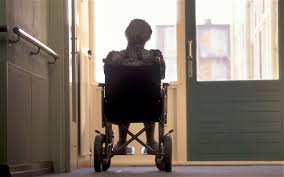I am fortunate to be able to publish my musings on Linkedin the social networking platform for professionals and this is one of my articles. I would welcome your feedback.
Care of our elderly. Is this an industry, sector or profession ?
Looking after our elderly in Britain is often referred to as the care “Industry”. Are we simply warehousing our elderly, washing, dressing and feeding until they die and drop off the production line ?
If caring for our elderly means we create a care “Sector” does that not fuel the argument surrounding ageism and gerontophobia ?
Already accused of draining the Government coffers with worse to come as they all live longer. These accusations fly regardless of fact that without the very same elderly Britain would not have won the War, achieved independence, established and funded the NHS, changed the face of our country with Laws and discoveries in medicine, science and innovation. Kept alive years beyond their predecessors with medical intervention and increasing technology, don’t blame the elderly for living longer!
Seen as a “Profession” care providers, many of whom are amazingly caring and passionate individuals would receive better pay, more respect and contracted hours.
Without our carers what would we do ? Gone are the days of the extended family, we’re generally all too busy chasing our tails to care for our loved ones ! We are one of the few countries that give the responsibility of caring for our elderly to someone else. Would you do that to your newborn ? Add to this the fact that half of the carers in the country are migrants. They are needed to care for our elderly which opens up the question of who is caring for theirs?
I often question why so few people choose to work in care. Many carers are doing so because there are few employment options and why potentially standards of care often fail our elderly and vulnerable ? Someone who used to work in a Residential home said to me 80% of people working in care don’t care.
So what of the others like me who were born to care, an innate feeling that comes from within. Youngsters find themselves on social care apprenticeships, being paid less than the minimum wage for a 50 hour week, needing to top up with other work. Fantastic carers leave the industry, sector, profession – reviled for “whistleblowing” and receiving no protection from employers. The ones that don’t care are fine, they keep quiet the ones that do face never working in care again.
So lets start thinking of care work as a vocation. Let’s work to encourage young men and women to view care not as a job but a career path, in one of the most rewarding fields there is.

